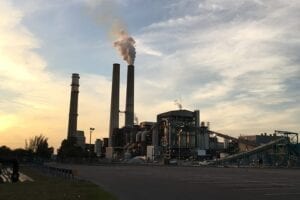The Department of Energy on Wednesday conditionally authorized Dominion Cove Point LNG, LP to export domestically produced liquefied natural gas (LNG) to countries that do not have a Free Trade Agreement (FTA), marking the fourth order allowing non-FTA LNG exports.
The orders authorizes Dominion Cove Point LNG to export 0.77 billion cubic feet of natural gas a day (Bcf/d) from its Cove Point LNG Terminal in Calvert County, Md.
The DOE granted the first authorization to export LNG to non-FTA countries in May 2011 from the Sabine Pass LNG Terminal in Cameron Parish, La., at a rate of up to 2.2 Bcf/d, and the second authorization in May 2013 to the Freeport LNG Terminal in Quintana Island, Texas, for exports of up to 1.4 Bcf/d. This August, it also conditionally allowed Lake Charles Exports to export LNG from its Lake Charles terminal in Lake Charles, La., at a rate of up to 2 Bcf/d for a period of 20 years.
In the U.S., in order to export natural gas, a project must apply for authorization from the DOE. Exports to FTA countries are automatically approved, but exports to non-FTA countries require a review. In addition to the four projects, the DOE is weighing roughly 20 applications. The Federal Energy Regulatory Commission (FERC) is also mandated to permit onshore LNG terminals, which includes conducting an environmental review in accordance with the National Environmental Policy Act. The Department of Transportation’s Maritime Administration is also mandated to license each offshore LNG terminal.
The DOE has suggested it will issue orders every six to eight weeks. The Cove Point order brings the cumulative total of authorized LNG exports up to 6.37 Bcf/d—slightly more than the “low” export case evaluated in a DOE-commissioned LNG Export Study released last year.
That study suggests that U.S. exports of LNG will increase marginal costs of supply and raise domestic natural gas prices, but it would have “net economic benefits” across a range of scenarios ranging from relatively normal conditions to stress cases with high costs of producing natural gas in the U.S. and exceptionally large demand for U.S. LNG exports around the world.
Sources: POWER, DOE
—Sonal Patel, associate editor (@POWERmagazine, @sonalcpatel)








